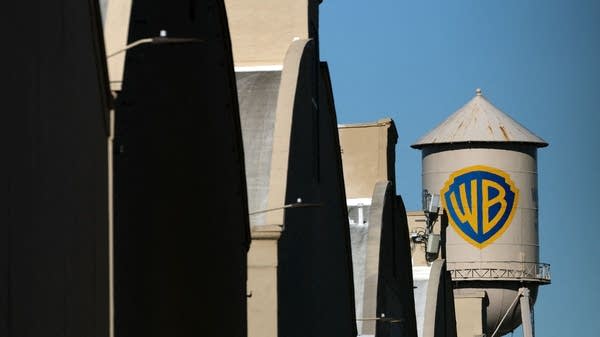Despite tariff headwinds, Coca-Cola reports stronger-than-expected quarterly earnings
The company’s success can be attributed in part to the fact that Coca-Cola is well insulate from tariffs.

It’s May. And as the weather warms, one retail category that typically sees sales rise: soft drinks.
This week Coca-Cola reported stronger-than-expected quarterly earnings.
This of course comes despite the tariff headwinds faced by many multinational companies with global supply chains.
But Coke CEO James Quincy attributed the company’s success in part to the fact that Coca-Cola itself doesn’t actually make much soda.
No, seriously.
The economics of the soda industry has everything to do with one immutable law of physics.
“One of the things about beverages is that they’re heavy,” said Duane Stanford, who publishes Beverage Digest.
He said it just doesn't make sense for a global brand like Coke to ship what amounts to mostly water across oceans.
“ So what Coca-Cola has done over the years is create bottling plants that are strategically located so that you have the shortest distance that makes sense to the retail stores,” said Stanford.
He said most of those Coke bottling plants are not actually run by Coca-Cola. Standalone franchises make Coke drinks, including the bottles and cans all over the world. Some are even publicly traded themselves. So analysts often talk about Coke not as a company, but as a system.
“It’s a vast and somewhat complicated network,” said Bonnie Herzog with Goldman Sachs.
She said the fact the drinks are locally made can help insulate Coke — and its bottlers — from tariffs. It’s also good for marketing.
“ A lot of the bottlers will have campaigns with their local communities,” said Herzog.
Like, sponsoring the local soccer team. On this week’s earnings call, Coke’s CEO said the company is stepping up its “Made in Mexico” ad campaign. Mexican consumers have been giving a trade war-induced side-eye to brands they perceive as American.
Herzog said the goal is to emphasize that “at the end of the day, you know, a lot of Coke's beverages are manufactured, distributed, produced in each of these countries by the local employees for the consumers in those markets.”
Coke does face other economic headwinds. In North America, it sold less soda by volume last quarter. Part of that may be because sugary drinks are a target of some in the Trump administration, said Errol Schweizer, publisher of the Checkout Grocery Update.
“Big soda is definitely in their cross hairs,” said Schweizer.
Schweizer said on that front, Pepsi may have a leg up. In March, it acquired Poppi, which calls itself a “better for you alternative to sugary sodas.”













